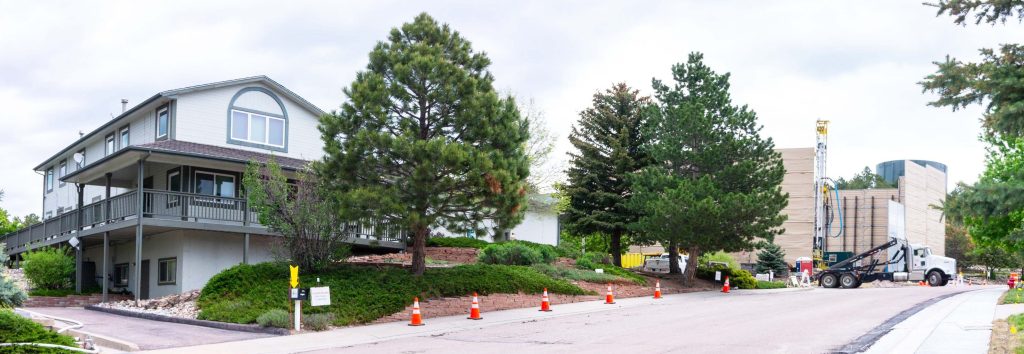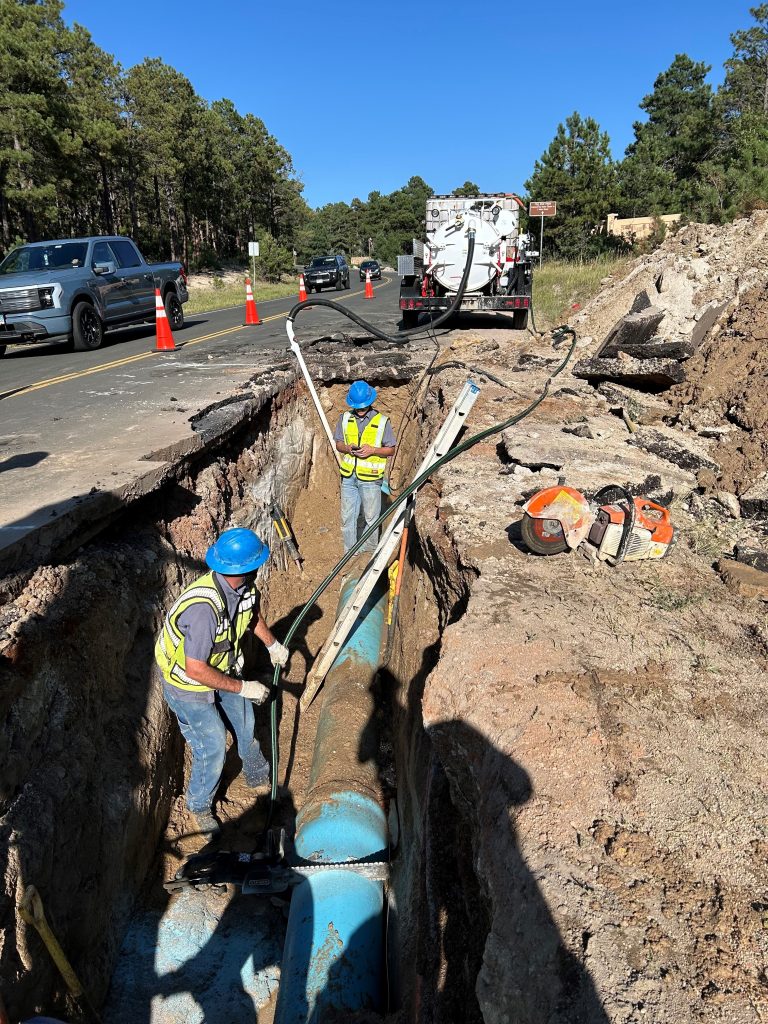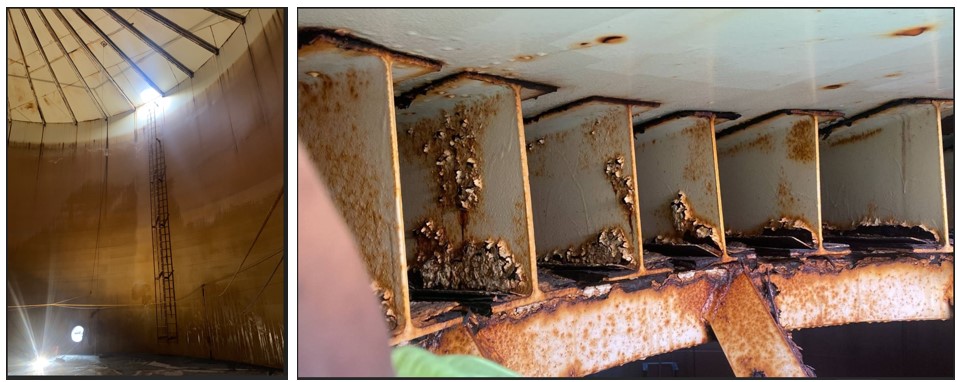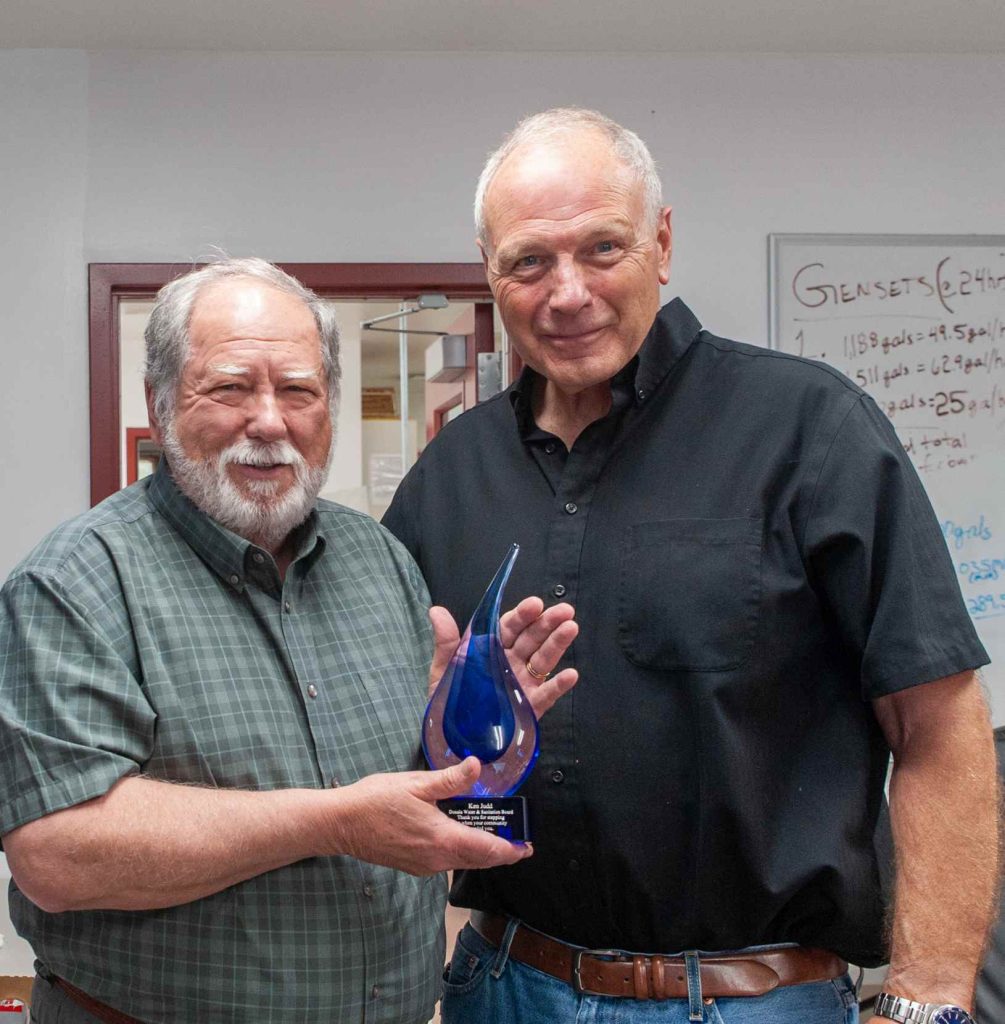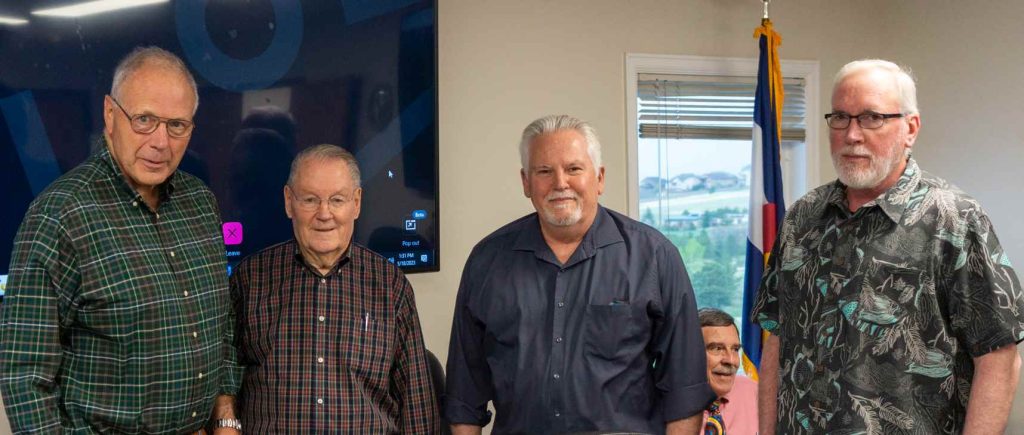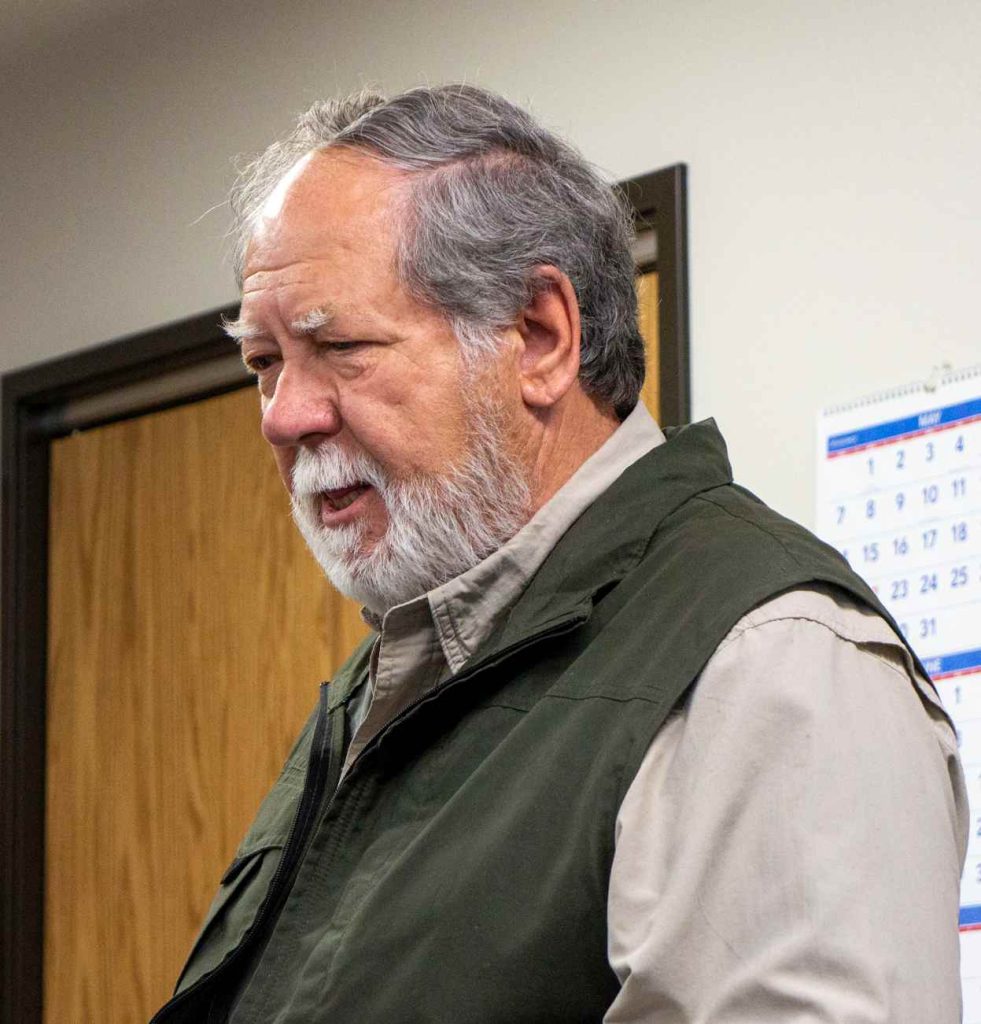- Board receives a clean audit report
- Discrepancy in waste treatment data
- Operational reports
- Consultant reports
- Director comments
- Executive session
By James Howald and Jackie Burhans
The Donala Water and Sanitation District (DWSD) board met in June to hear an audit report, discuss waste treatment data discrepancies, and hear operational reports. The meeting was relocated due to the temporary closure of the district’s offices. The board heard from a district consultant and learned of an additional board position for its president. The meeting ended with an executive session.
Board receives a clean audit report
Tom Sistare of Hoelting & Company Inc., the board’s auditor, explained the audit process and thanked the district staff for being well-prepared. As in the past, Hoelting has issued an unmodified or clean opinion. The report had no findings of note on internal controls.
Highlights include:
- Cash and investments are up by $2.8 million, tracking with changes in equity.
- Liabilities have decreased by $538,000 due to paying debt service as required.
- Tax revenue increased by 26% due to increased valuation.
- Capital expenditure was $1.3 million, which was similar to the previous year.
Sistare noted that operational expenses were up 2% compared to a 10% increase the previous year. The largest risk, he said, would be finishing a treatment plant then having the standards rise the following year.
The board voted unanimously to accept the audit.
Discrepancy in waste treatment data
In his report, Waste Plant Operator Aaron Tolman reported that hydraulic loading, which is the volume of wastewater that a treatment facility must process over a given time, had risen from around 50% to 62.9%. The change came after Triview Metropolitan District (TMD) replaced a flume and installed a laser flow meter (see wp.ocn.me/v25n6tmd). Initial readings were exponentially low, at 100,000 to 200,000 gallons per day and then, after adjustments, increased to between 700,000 and over 1 million gallons per day.
General Manager Jeff Hodge said that the total capacity for the Upper Monument Creek Regional Wastewater Treatment Facility (UMCRWWTF) is 1.75 million gallons, and the state requires an action plan when the plant goes over 80% capacity. UMCRWWTF is operated by DWSD and jointly owned by DWSD, TMD, and Forest Lakes Metropolitan District. Academy Water and Sanitation District is a customer.
Tolman said if the numbers were correct, they would have had to put a third basin online, but that isn’t happening. Donala is working with Mark Valentine, a project manager at Merrick & Co., to review the data.
Board President Wayne Vanderschuere said there would be a UMCRWWTF owners meeting on July 3 and he would make sure that this was on the agenda.
Operational reports
Hodge reported that he had attended the American Water Works Association 2025 Annual Conference and Expo (ACE) including a pre-conference workshop on collaborative delivery methods. Merrick and Co., the consulting company that provides workflow management for The Loop, presented the project. Burns & McDonnell, the company designing lift stations, pipelines, and water treatment for The Loop, presented a similar project it is doing in Castle Rock.
Superintendent of Water Operations Ronny Wright said the well 7D redrilling project is going well, though a few nearby neighbors had noted the harmonics building when the drill hit clay. Wright said the next steps would be to mobilize SiLibeads, a modern improvement over gravel, to screen out impurities. SiLibeads are unbreakable soda-lime glass that is free of impurities and heavy metals.
Vanderschuere said he had run into contractors for MVEA drilling without a proper water and sewer locate, which could result in breakage of electrical, water, or sewer lines. Jeff Hodge said if any of Donala’s lines were damaged, Donala would repair them and send a bill to the party responsible. Wright said that tickets had been filed on the incident, and he was on good speaking terms with the supervisor and superintendent. Wright also noted that work was going well on the tanks and Well 9A.
Tolman confirmed that UMCRWWTF was ready to host the July meeting of the Donala board. He stated that roads were paved, sidewalks, curbs, and gutters were installed, and landscaping was completed, noting that additional paving is required near a newly constructed roundabout. Additional striping was scheduled, and the bridge is complete, Tolman said. Process control for the plant is running well, he said, giving them opportunities to adjust for efficiency.
Consultant reports
Consultant Brett Gracely of LRE Water provided more detail on the Well 7D redrilling project issues with claystone and breaking equipment and next steps. He also reviewed the status of water rights objector cases LRE is assisting with as well as the successful completion of water exchange into Clear Creek saying that the water is now in the district’s Pueblo Reservoir water account and should be moved through the Northgate interchange and delivered to customers sometime in July or August to prove that the water was put to beneficial use after which a due diligence application could be filed. Hodge said the district would coordinate closely with other projects including water sampling for the Loop project.
Gracely also reported on the status of conversations with the Colorado Division of Water Resources on exchanges with reservoirs in Aurora, but said they had some major cases involving the Lower Arkansas Water Management Association (LAWMA) that seemed to be occupying them. Gracely said that attorneys were discussing the pros and cons of combining the exchanges into one filing vs. multiple filings and said that there might be some advantage to filing before the end of year. Vanderschuere suggested scheduling a work session in the next few months just for this item and inviting the water lawyer.
Finally, Gracely announced that June is his last month of employment at LRE Water. He has accepted a position as water planning practice leader at Plummer and suggested that his colleagues Helen Malenda-Lawrence and Kelsey Briggs act as co-leads in the interim to keep Donala informed. He noted that Plummer occupies the same building as LRE Water on Auraria Parkway in Denver and the two firms have collaborated in the past and have a non-compete agreement.
Director comments
Vanderschuere announced that he is now officially on the MVEA board as a director for District 3 and has attended an orientation meeting and his first regular board meeting on June 17. He will serve in that capacity in addition to his role at DWSD as board president, having confirmed with legal counsel on both sides that there is no conflict of interest. He said that MVEA is concerned about the pending federal budget bill and what would be funded or not, noting that renewables and fiber optics had been getting federal subsidies. This is also a concern for Tri-State Generation and Transmission Association and other peer organizations.
Executive session
The meeting ended with an executive session to discuss security arrangements or investigations related to security measures for maintenance technicians and water operators and personnel matters related to maintenance technicians and water operators.
**********
The next board meeting is scheduled for Thursday, July 17 at 1:30 p.m. Generally, board meetings are held the third Thursday of the month at 1:30 p.m. and include online access; call (719) 488-3603 or access www.donalawater.org to receive up-to-date meeting information. The district office is located at 15850 Holbein Drive, Colorado Springs.
James Howald can be reached at jameshowald@ocn.me. Jackie Burhans can be reached at jackieburhans@ocn.me.
Other Donala Water and Sanitation District articles
- Donala Water and Sanitation District, June 12 – Positive audit report; inconsistent waste treatment numbers (7/3/2025)
- Donala Water and Sanitation District, May 5 – Directors sworn in; district offices temporarily closed (6/7/2025)
- Donala Water and Sanitation District, April 17 – Workshop covers finances, water supply (5/3/2025)
- Donala Water and Sanitation District, Mar. 27 – New water and sewer rates take effect (4/5/2025)
- Donala Water and Sanitation District, Feb. 20 – Voters remove term limits (3/1/2025)
- Donala Water and Sanitation District, Jan. 16 – Board passes housekeeping resolution (2/1/2025)
- Donala Water and Sanitation District, Nov. 21 – State signs off on radium remediation (1/4/2025)
- Donala Water and Sanitation District, Nov. 21 – Board hears rate and groundwater supply studies (12/5/2024)
- Donala Water and Sanitation District, Oct. 10 – Board receives preliminary 2025 budget, considers rate increase (11/2/2024)
- Donala Water and Sanitation District, Sept. 19- -Board continues term limit debate (10/5/2024)


